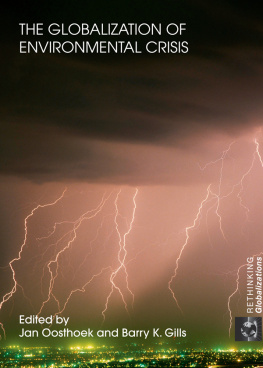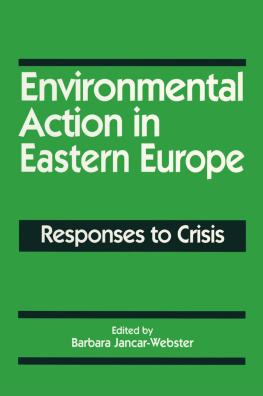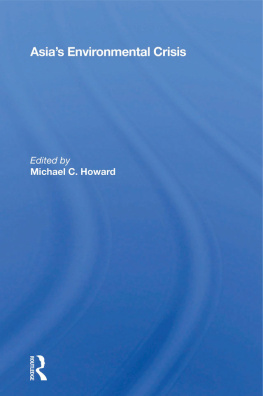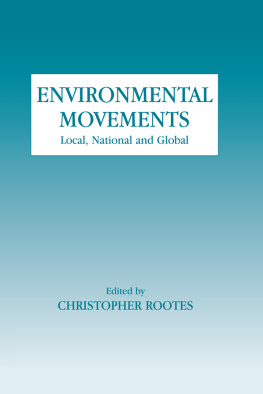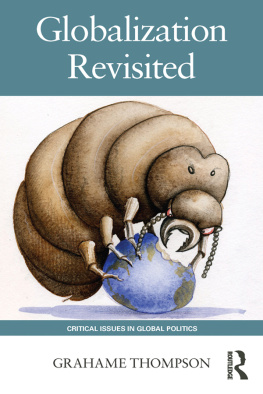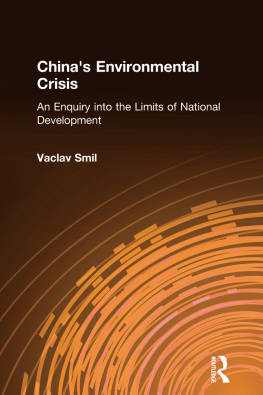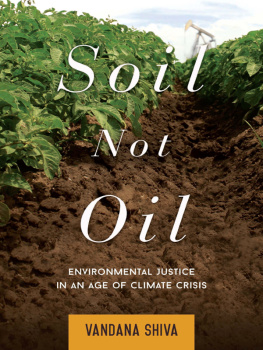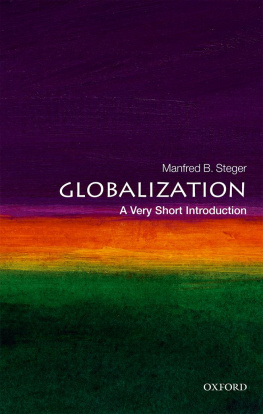The Globalization of Environmental Crisis
This collection of essays addresses what is arguably the most pressing and urgent issue of our daythe continuing development of global environmental crises and the need for new and urgent responses to them by the world community.
The contributors include social scientists, environmental historians, anthropologists, and science policy researchers, and together they give an overview of the history of the globalization of environmental crisis over the past several decades, both in terms of the science of measurement and the types of policy and public responses that have emerged to date. The book covers a wide range of topics, including:
- international environmental governance,
- North-South inequalities,
- climate change,
- air pollution,
- economic and paradigm shifts,
- indigenous peoples and eco-conservation,
- EU environmental policy and
- the United States and politicised climate science.
The book will be of particular interest to all those concerned with the on-going debate over the state of the global environment and what to do about it.
This book was previously published as a special issue of Globalizations
Jan Oosthoek is Visiting Lecturer in Environmental and World History in the School of Historical Studies, Newcastle University.
Barry K. Gills is Professor of Global Politics at the School of Geography, Politics and Sociology at Newcastle University.
Rethinking Globalizations
Edited by Barry Gills, Newcastle University, UK
This series is designed to break new ground in the literature on globalization and its academic and popular understanding. Rather than perpetuating or simply reacting to the economic understanding of globalization, this series seeks to capture the term and broaden its meaning to encompass a wide range of issues and disciplines and convey a sense of alternative possibilities for the future.
1. Whither Globalization?
The Vortex of Knowledge and Globalization
James H. Mittelman
2. Globalization and Global History
Edited by Barry K Gills, William R. Thompson
3. Rethinking Civilization
Communication and terror in the global village
Majid Tehranian
4. Globalisation and Contestation
The New Great Counter-Movement
Ronaldo Munck
5. Global Activism
Ruth Reitan
6. Globalization, the City and Civil Society in Pacific Asia
Edited by Mike Douglass, K.C. Ho and Giok Ling Ooi
7. Challenging Euro-Americas Politics of Identity
The Return of the Native
Jorge Luis Andrade Fernandes
8. The Global Politics of Globalization
Empire vs Cosmopolis
Edited by Barry K Gills
9. The Globalization of Environmental Crisis
Edited by Jan Oosthoek and Barry K Gills
The Globalization of Environmental Crisis
Edited by Jan Oosthoek and Barry K. Gills
First published 2008 by Routledge
2 Park Square, Milton Park, Abingdon, Oxon, OX14 4RN
Simultaneously published in the USA and Canada
by Routledge
270 Madison Avenue, New York, NY 10016
Routledge is an imprint of the Taylor & Francis Group, an informa business
2008 edited by Jan Oosthoek and Barry K. Gills
All rights reserved. No part of this book may be reprinted or reproduced or utilised in any form or by any electronic, mechanical, or other means, now known or hereafter invented, including photocopying and recording, or in any information storage or retrieval system, without permission in writing from the publishers.
British Library Cataloguing in Publication Data
A catalogue record for this book is available from the British Library
Library of Congress Cataloging in Publication Data
ISBN 10: 0-415-44827-1 (hbk)
ISBN 13: 978-0-415-44827-7 (hbk)
Contents
J. R. McNeill
Jan Oosthoek and Barry K. Gills
J. Donald Hughes
Jouni Paavola
Dimitris Stevis
Alan Grainger
S. W. Verstegen and J. C. Hanekamp
Anthony R. Zito
Jim Igoe
Phia Steyn
Bjrn-Ola Linnr and Merle Jacob
Kevin C. Armitage
Peter Brimblecombe
Jan Oosthoek
Nancy Bazilchuk
J. Timmons Roberts and Bradley C. Parks
J. R. McNeill
Acknowledgments: Georgetown University School of Foreign Service colleagues Tim Beach and Nate Hultman offered useful suggestions on short notice.
We have it on good authority that it is easier for a camel to pass through the eye of a needle than for a rich man to enter the kingdom of heaven. The next two or three human generations must perform the equivalent of wedging a camel through a historical needles eye if we hope to enter an era of relaxed ecological threats and pressures. That future, perhaps 5070 years hence, will fall somewhat short of heaven no doubt, and getting the camel there will not be easy. But it is possible, with enough foresight, leadership, and luck.
In the pages that follow, I will explain how I think that might happen. As an historian, I am not accustomed to imagining the future, and no better equipped for it than anyone else. The arguments that I offer emphasize the significance of population and energy regimes, which I see as crucial variables in shaping the recent environmental history of the globe. But they also recognize the role of the unforeseeable, of randomness, of luck. It is a glance toward the future anchored in my vision of the past.
The subsequent chapters of this book give a sense of that past and how it has formed the present. Donald Hughes offers a sweeping historical perspective, while the other chapters focus on the last century or in some cases the last decade or so. Some chapters are global in scope, others local. They all recognize the potential transformative power of the social, political, and economic trends we call globalization. Collectively they provide a strong sense of the contemporary quandary and its origins.
I. Population
The human population took hundreds of thousands of years to reach the one billion mark, attained about 1820. It took 110 years (c. 1930) to add the next billion. Since 1960 it has required only 1213 years to add each subsequent billion. We now number about 6.5 billion. While an extraordinary biological success matched by no other mammal in the history of life on earth, this spectacular growth raised considerable anxieties as early as the 1940s, at least in North America and Europe. Professional demographers did nothing to soothe the worried when they predicted global populations of 12 or 15 billion and vast throngs of malnourished. But lately they have scaled back their forecasts in light of rapidly falling fertility in our species. Demographers now predict we will reach about 89 billion by 2050 or 2060. (Just what might follow is most unclear: demographic forecasts carry error terms that grow with time and are worthless more than 50 years out).
The rate of population increase reached its apogee, a little over 2% per annum, about 196271.1 It is now 1.1% or 1.2%, a sharp decline attained despite lengthening life expectancies. The deceleration of demographic growth is a result of rapidly falling fertility among most of the human population. While there are many reasons behind the remarkable reduction in fertility, probably the most basic factor is urbanization. Today more than half our species lives in urban habitats. Cities have proven a powerful contraceptive in our history. Urban living quarters are cramped, children require costly educations before they cease to be a drain on family finances, so most parents choose to have fewer babies. Today they also know the odds of their children surviving to adulthood are good, whereas 50 or 100 years ago those odds in many parts of the world were little better than 5050, so parents wanting to ensure their posterity normally chose to have several babies. City conditions always and everywhere changed incentives and culture, and thereby reduced fertility. They likely will continue to do so. Where communications and transport allow rural populations to share in urban culture and values, and allow access to health care, country folk often have imitated their city cousins and reduced their fertility sharply too.


